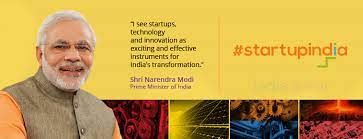In recent years, India has witnessed a significant rise in startup culture and entrepreneurship. A startup is typically a newly established business that aims to develop innovative products, services, or business models to address a specific problem or cater to a specific market niche. Startups often operate in technology-driven sectors such as e-commerce, software development, fintech, healthcare, and more.
India’s startup ecosystem has been fueled by several factors, including a large pool of skilled professionals, a growing middle class, improving infrastructure, increased internet penetration, supportive government initiatives, and access to venture capital funding.
The Indian government has launched various programs and initiatives to promote startups and create a favorable business environment. One of the flagship initiatives is the “Startup India” campaign, which was launched in 2016. It aims to provide support and incentives to startups through tax benefits, simplifying regulations, and fostering innovation.
Furthermore, cities like Bengaluru, Mumbai, Delhi-NCR, and Hyderabad have emerged as major startup hubs in India, hosting a vibrant ecosystem of incubators, accelerators, co-working spaces, and venture capital firms. These hubs offer networking opportunities, mentorship, and access to funding, which are crucial for the growth of startups.
Many successful startups have emerged from India in recent years, such as Flipkart (e-commerce), Ola (ride-hailing), Paytm (digital payments), Zomato (food delivery), and BYJU’S (edtech). These companies have not only transformed industries but have also attracted significant investments from both domestic and international investors.
Overall, the startup ecosystem in India continues to evolve, with a focus on innovation, technology, and entrepreneurship. It has contributed to job creation, economic growth, and the development of disruptive solutions that address various societal challenges.








